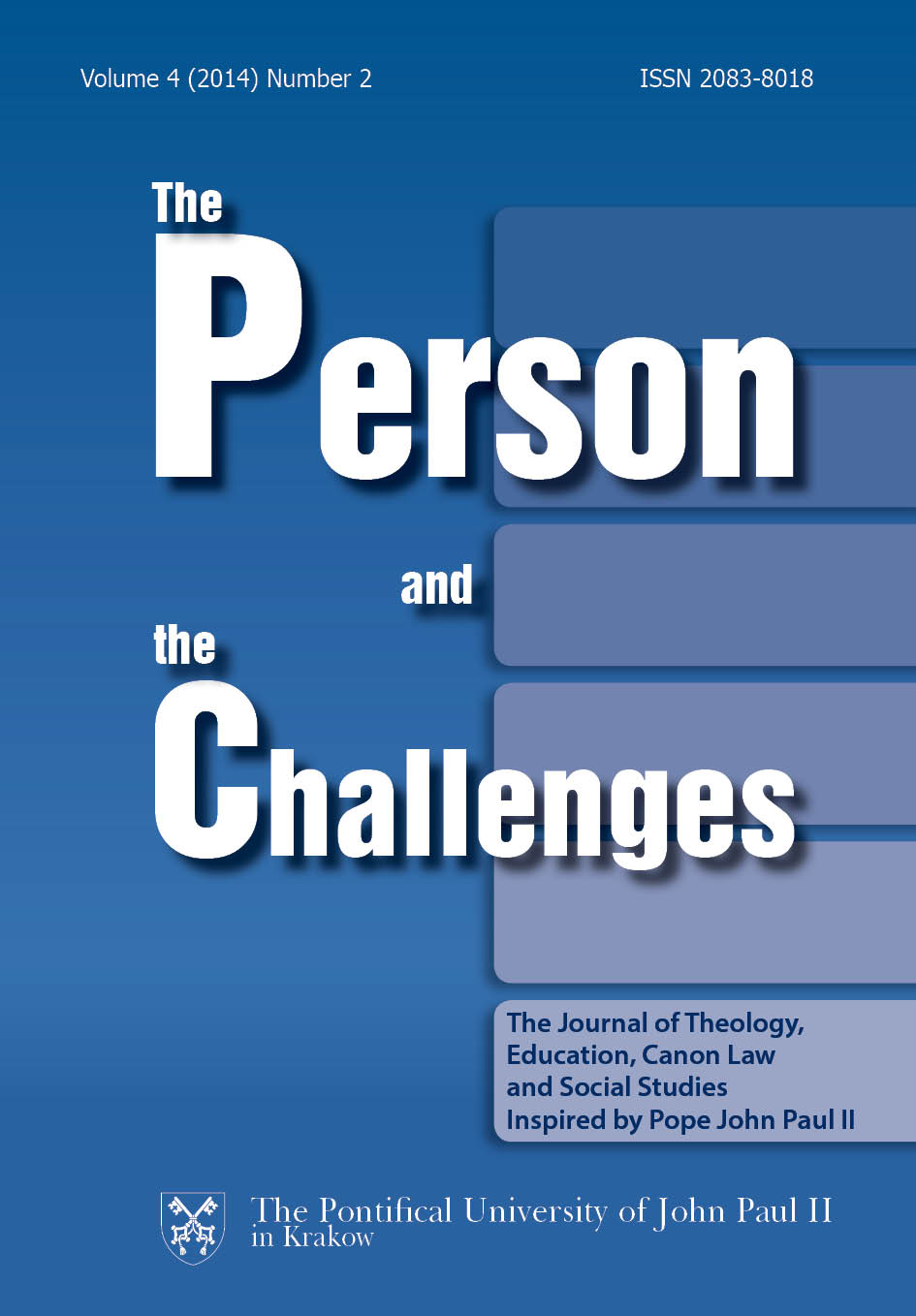Biblische Familien als Herausforderung für die Erziehung heute
DOI:
https://doi.org/10.15633/pch.659Słowa kluczowe:
Family, education, generation, conflict, reconciliation, integrationAbstrakt
The Bible tells us not only about God, but about human beings and anthropological relationships. By reflecting on relationships of some biblical families, we can gain the potentials of overcoming different kinds of deep relational conflicts. In this way we might learn how to approach Jeremiah’s prophetic oracle: No longer will anyone go around saying, “Sour grapes eaten by parents leave a sour taste in the mouths of their children” (Jer. 31:29). According to the stories about Abraham and his family, Isaac and his family, Jacob and his family, and Josef and his reconciliation with his brothers in Egypt, we see that the “taste of the grapes” from the previous generations undoubtedly affects the next generation. To overcome the negative consequences and to prevail over the compulsive repetitions of the past generations, the biblical stories have lessons that cannot be ignored, lessons that are didactic even to contemporary men and women, especially in the context of the crisis which family life is experiencing today. By accepting the history and in learning from it, which includes at least some levels of forgiveness and reconciliation with the past, the next generation can potentiality cultivate the ability to “live different” and to “do better”. In that context God is giving the chance for a “new life” to each new generation.
Bibliografia
Bell R. D., Biblical Models of Handling Conflict, Vancouver 2001, Regent College Publishing.
Cloud H., Townsend J., How People Grow: What the Bible Reveals about Personal Growth, Grand Rapids – Michigan 2001, Zondervan.
Cohen N. J., Self, Struggle & Change: Family Conflict Stories in Genesis and Their Healing Insights for Our Lives, Woodstock 1995, Jewish Lights Publishing.
Cohen N. J., Voices from Genesis: Guiding Us Through the Stages of Life. Woodstock – Vermont 1998, Jewish Lights Publishing.
Corey M. A., Job, Jonah, and the Unconscious: A Psychological Interpretation of Evil and Spiritual Growth in the Old Testament, Lanham – New York – London 1995, University Press of America.
Creach J. F. D., Violence in Scripture, Louisville – Kentucky 2013, Westminster John Knox Press.
Firestone R. W., Catlett J., The Ethics of Interpersonal Relationships, London 2009, Karnac.
Forgas J. P., Affective Influences on Communication and Attribution in Relationships, in: V. Manusov, J. H. Harvey (Hrsg.), Attribution, Communication Behavior, and Close Relationships, Cambridge – New York – Melbourne – Madrid – Cape Town – Singapore – Sao Paulo – Delhi – Tokyo – Mexico City 2001, Cambridge University Press, S. 3–20.
Friedman R. E., Commentary on the Torah: With a new English Translation, San Francisco 2001, Harper Collins Publishers.
Gerjolj S., Živeti, delati, ljubiti: Pedagoška in psihološka interpretacija svetopisemskih pripovedi, Celje 2009, Celjska Mohorjeva družba.
Hartley E. J., New International Biblical Commentary: Genesis, Peabody – Massachusetts – United Kingdom 2000, Hendrickson Publishers, Paternoster Press.
Höfer A., Gottes Wege mit den Menschen: Ein gestaltpädagogisches Bibelwerkbuch, München 1993, Don Bosco Verlag.
Höfer A., Spuren Gottes in meinem Leben, München 2003, Don Bosco Verlag.
Kille A. L., Jacob: A Study in Individuation, in: D. L. Miller (Hrsg.), Jung and the Interpretation of the Bible, New York 1995, Continuum, S. 40–54.
Loder J. E., The Logic of the Spirit: Human Development in Theological Perspective, San Francisco 1998, Jossey-Bass Publishers.
Powell L., Self W. R., Holy Murder: Abraham, Isaac, and the Rhetoric of Sacrifice, Lanham – Boulder – New York – Toronto – Plymouth 2007, University Press of America.
Pravder Mirkin M., The Woman Who Danced By The Sea: Finding Ourselves in the Stories of our Biblical Foremothers, New York 2005, Monkfish Book Publishing Company.
Rollins W. G., Soul and Psyche: The Bible in Psychological Perspective, Minneapolis 1999, Augsburg Fortress.
Schirmer E., Müttergeschichten: Frauen aus dem Alten Testament erzählen von ihrem Leben, Offenbach 1989, Jünger Medien & Burckhardthaus-Laetere.
Trible P., Ominous Beginnings for a Promise of Blessing, in: P. Trible, L. M. Russell (Hrsg.), Hagar, Sarah, and Their Children, Louisville – Kentucky 2006, Westminster John Knox Press, S. 33–69.
Walton H. J., The NIV Application Commentary: From biblical text … to contemporary life, Grand Rapids – Michigan 2001, Zondervan.
Pobrania
Opublikowane
Numer
Dział
Licencja
Prawa autorskie (c) 2015 Stanko Gerjolj

Utwór dostępny jest na licencji Creative Commons Uznanie autorstwa 4.0 Międzynarodowe.
Autorzy publikujący w czasopiśmie udzielają jego wydawcy zgody o następującej treści:
- Autor zachowuje autorskie prawa majątkowe do utworu, a jednocześnie udziela wydawcy czasopisma zgody na jego pierwszą publikację w wersji drukowanej i wersji online na licencji Creative Commons Uznanie autorstwa 4.0 Międzynarodowe oraz zgody na wykonywanie opracowań, w tym przekładów.
- Autor ma możliwość udzielania zgody niewyłącznej na opublikowanie utworu w wersji, która ukazała się w czasopiśmie (np. zamieszczenia go w repozytorium instytucjonalnym lub opublikowania w książce), wraz z informacją o jego pierwszej publikacji w czasopiśmie.
- Autor może umieścić swój utwór online (np. w repozytorium instytucjonalnym lub na swojej stronie internetowej) jeszcze przed zgłoszeniem utworu do czasopisma.

